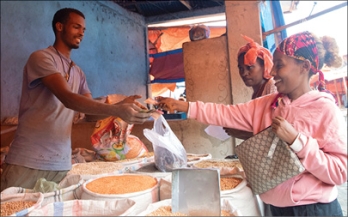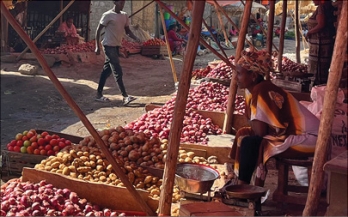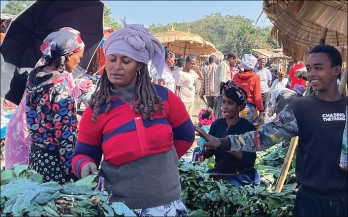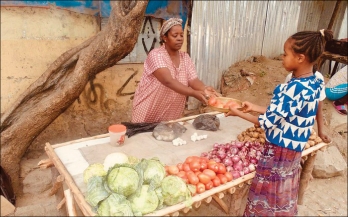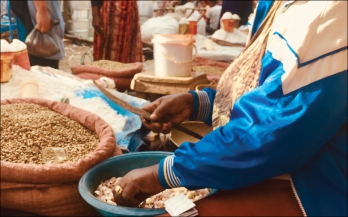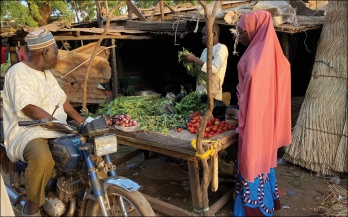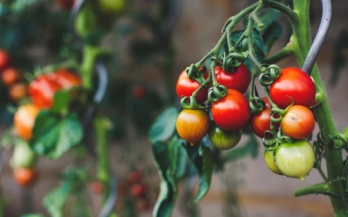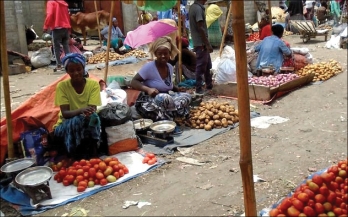Global Alliance for Improved Nutrition (GAIN) - 07/08/2023
As part of EatSafe's effort to evaluate the impacts of food safety behavior change interventions, this report summarized food safety behaviors and behavior drivers across four food safety macro-indices, assessed via structured surveys of vendors and consumers in Hawassa, Ethiopia.
Global Alliance for Improved Nutrition (GAIN), International Livestock Research Institute (ILRI) - 02/10/2023
EatSafe collected samples of three nutritious commodities to assess the relative exposure and risk of foodborne illness from consuming tomatoes, kale, and lettuce sold in traditional food markets in Southern Ethiopia.
Global Alliance for Improved Nutrition (GAIN) - 06/09/2022
To increase consumer demand for improved food safety, EatSafe is testing three interventions that seek to change consumers and vendor behaviors in a traditional food market in Hawassa, Ethiopia.
Global Alliance for Improved Nutrition (GAIN) - 20/02/2023
The EatSafe program conducted a range of formative research activities to understand the local context in Hawassa, Ethiopia. Learnings from these activities were then used to develop market-based interventions to increase consumer demand for improved food safety.
Marijike Hummel, Christina Nyhus Dhillon, Aster Zewdie, Hana Yemane Wodajo - 11/01/2023
As elaborated in a GAIN evidence brief, poor-quality diets and insufficient food quantity are linked to reduced work capacity. This suggests that the malnutrition burden can be partly addressed through a win-win-win approach which improves individual lives, business outcomes, and national economies.
Global Alliance for Improved Nutrition (GAIN) - 21/12/2022
EatSafe conducted a focused ethnographic study to examine perceptions, knowledge, and experience related to food safety among consumers and traditional food market vendors Hawassa, Ethiopia.
Global Alliance for Improved Nutrition (GAIN) - 14/11/2022
To understand knowledge, attitudes, and practices related to food safety behaviors, EatSafe surveyed 300 consumers and vendors in Hawassa, Ethiopia, as well as structured observations of vendor behaviors.
Global Alliance for Improved Nutrition (GAIN) - 14/10/2022
Despite having more than 10 million dairy cows in Ethiopia, milk productivity and consumption is very low, on average below 2 litres per cow. In 2017, the GAIN Access to Better Dairy partnership was established and supported by Danida. Partners committed to help improve diets of children and mothers, as well as the livelihoods of smallholder farmers, by developing affordable, safe, and nutritious dairy solutions that appeal to children.
Global Alliance for Improved Nutrition (GAIN) - 13/10/2022
In 2018, GAIN expanded its Postharvest Loss Alliance for Nutrition (PLAN) program to Ethiopia with a focus on reducing loss of tomatoes. Working with local stakeholders, PLAN Ethiopia was designed with two key components.
Global Alliance for Improved Nutrition (GAIN) - 25/10/2022
EatSafe conducted three data collection activities, including interviews, observations, and a randomized experiment, to understand consumers’ and vendors’ food safety knowledge, attitudes, and practices in Hawassa, Ethiopia.
